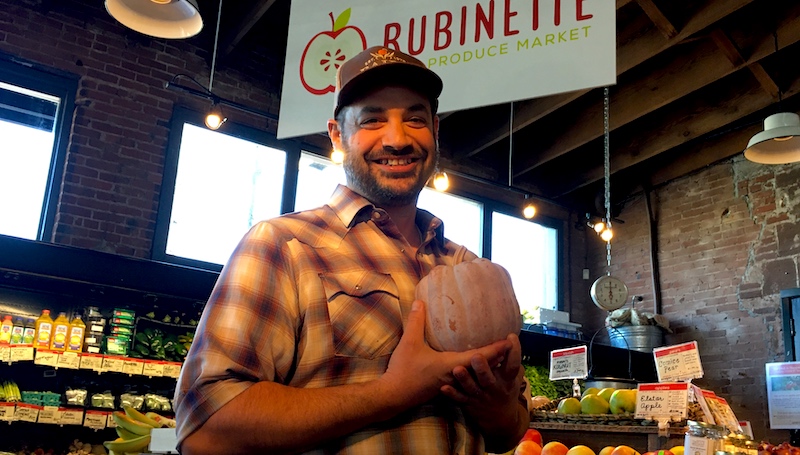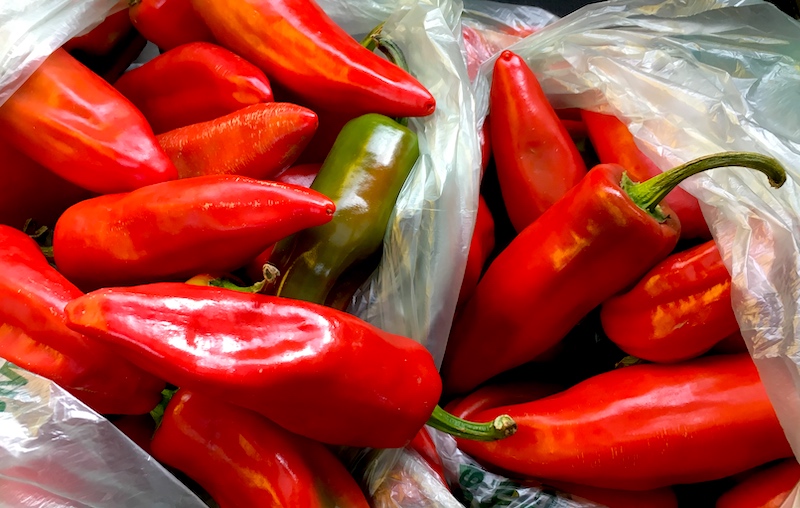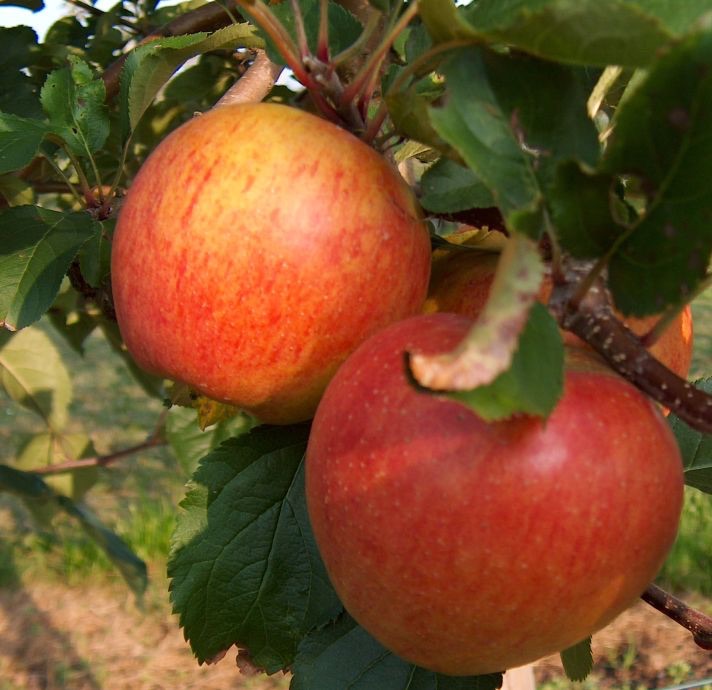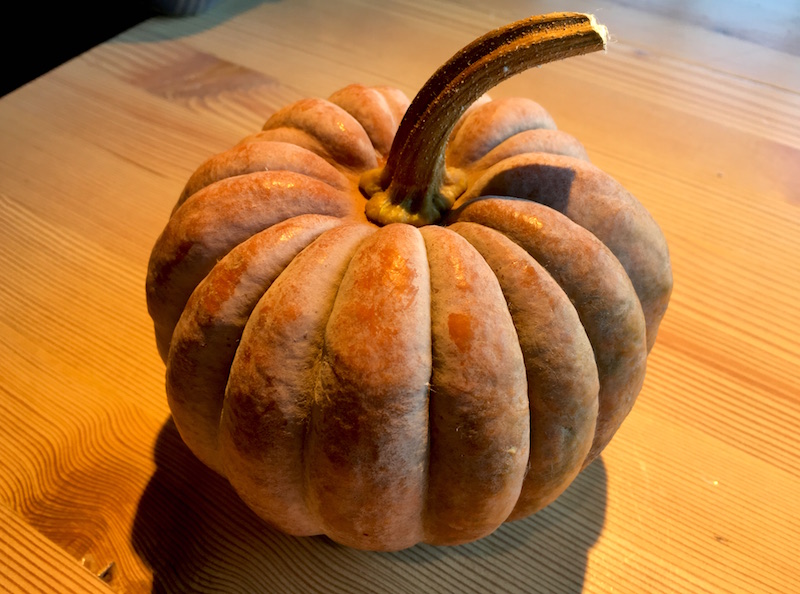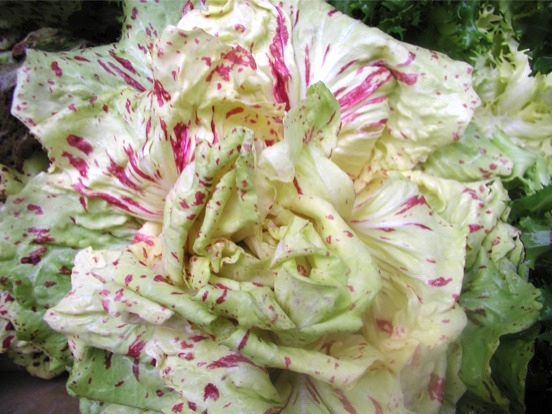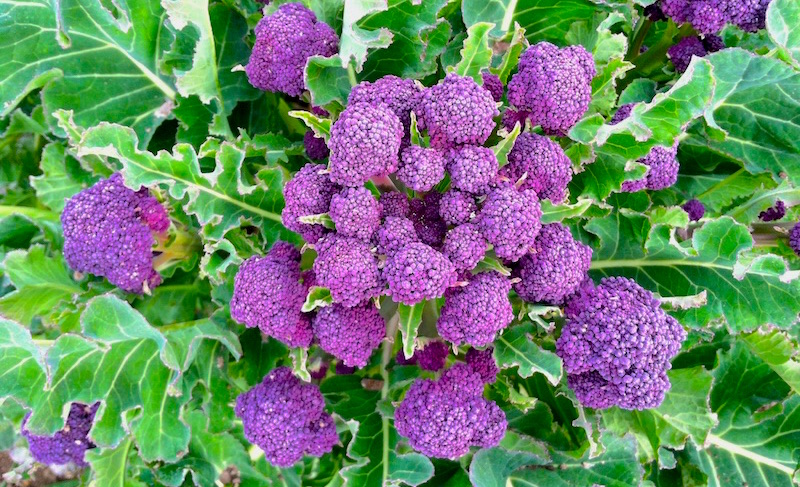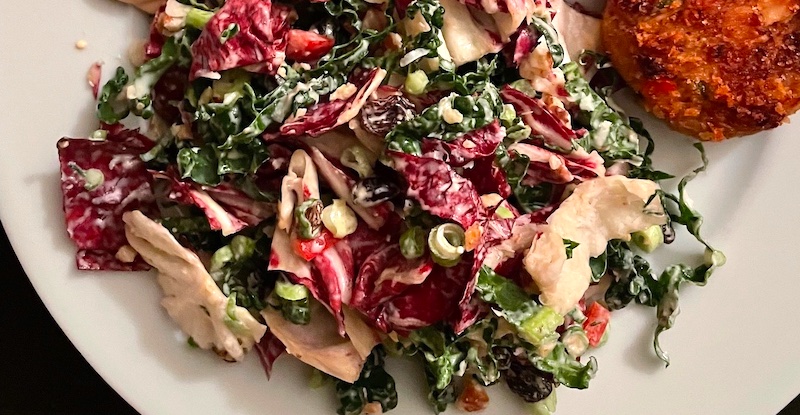
'A Few of My Favorite Things' Salad to Get Through the Winter Blahs
As sad as I was to bid farewell to the sweetness of summer lettuces and greens, I have to say I started drooling at the prospect of the bitter bite of the hearty chicories that would soon be filling market stalls and greengrocers' shelves. As versatile as brassicas in everything from salads to soups and stir-fries, the split heads can even take the char from a grill, griddle or broiler.
Right now is the peak moment to check out the rainbow of colors and textures available from local farms—and you'll find the best prices on them at the farmers' market! It's a task I'm completely signed up for, obviously, and fortunately my Stoneboat Farm CSA includes them in its shares almost every week.
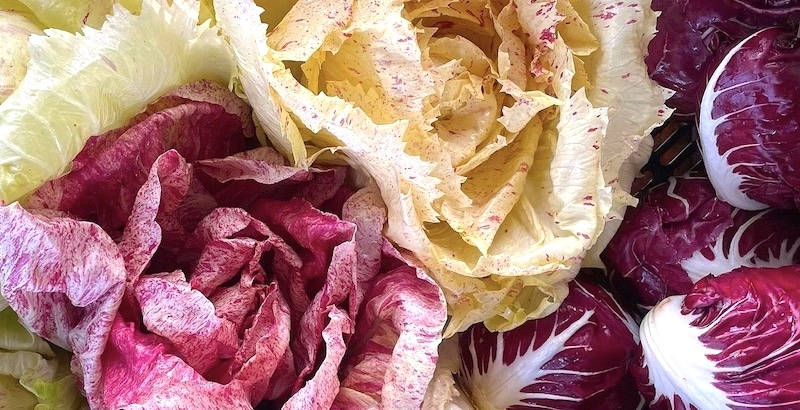
If you happen to be averse to the intensity of chicory's bitterness, you can take a page from Nostrana's Chef Cathy Whims and soak the chopped leaves in ice water for a couple of hours ahead of time.
Lately I've been enjoying winter salads by chopping them into salads with a variety of other seasonally appropriate greens and condiments. One green in particular that seems to beautifully complement chicory's bitterness is deep green lacinato kale, sweetened as it always is this time of year by the frosts that cause the plants to flood the leaves with sugars to keep them from freezing. I also love that it adds a dark contrast to the chicory's bright colors, and its bubbly texture adds a soft crunch to the mix.
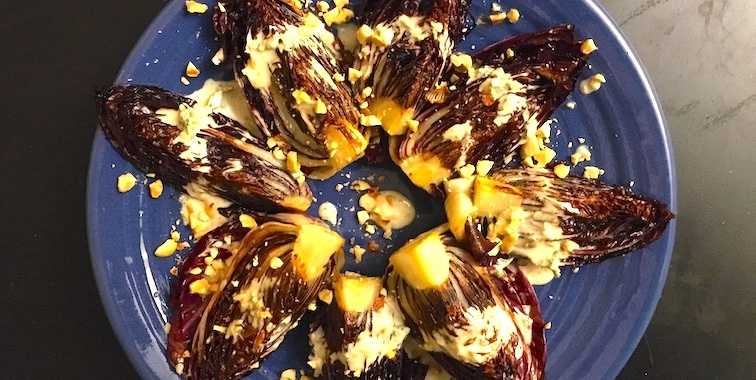
The variations are endless: I've thrown in crushed hazelnuts, green onions, sweet peppers, chopped beets, capers, dried cranberries—you name it, I've probably tried it. And a sprinkling of grated parmesan or crumbled blue cheese is not a bad idea, either. I like a creamy dressing (see below) but a classic Caesar dressing, a sweet mustard vinaigrette or even a fig and balsamic dressing would all do this salad justice.
"A Few of My Favorite Things" Chicory Salad
For the dressing:
3 Tbsp. mayonnaise
1 Tbsp. Dijon mustard
2 Tbsp. rice vinegar
1 clove garlic, pressed in a garlic press
1 Tbsp. white miso
Herbs, finely chopped (I like dried or fresh tarragon or thyme, as well as chopped chives)
1 tsp. honey (optional)
For the salad:
Radicchio or chicory leaves, chopped into 1" pieces
Lacinato kale, chopped into 1/4" chiffonade
Condiments like crushed hazelnuts, slivered green onions, chopped sweet peppers, chopped beets, capers, etc.
Grated parmesan or crumbled blue cheese (optional)
For the dressing, combine ingredients in a small bowl and stir until smooth.
Combine salad ingredients in appropriately sized salad bowl, drizzle with dressing of your choice and toss.
